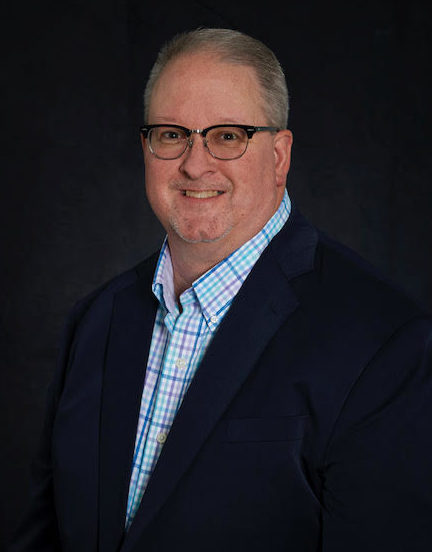
As we engage with a potential new group leader, we must help them move past reasons they may object to taking on the role.
By Ken Braddy
As a college student selling men’s clothing on commission, I quickly learned if I couldn’t overcome customer objections, I couldn’t make a sale. In the post-COVID world of church, we need to engage with potential new leaders and help them move past some objections they may have to leading a group.
Here’s a look at a recent conversation on the Disciple-making in Community podcast drilling down on answering objections during the enlistment process.
It’s hard to hear a “no” when people you’ve prayed about becoming group leaders turn you down. How do you deal with the reality that we’re probably going to get more nos than yeses over the course of time?
Allan Taylor, executive pastor of ministry, First Baptist Concord, Knoxville, Tennessee:
I had to accept the fact that when I’m asking someone to serve, I’m actually doing them a favor. Now, I know that’s a different perspective. We think we’re infringing on people. But I finally came to grips with myself—and really it was a biblical conviction—that I’m actually doing them a favor because we know God wants them to serve. And not only does God want them to serve, but He’s gifted them to serve.
Chris Surratt, pastor of discipleship, Harvest Church, California:
It took time and maturity and knowing that a lot of those eventually come around and become yeses. They’re just not in that moment ready. But just give it time and don’t give up. Just because they said no initially doesn’t mean you can’t ask them again the next semester or the next year and keep following up.
When you talk with the potential group leader, what are some objections they give when you ask them to consider becoming a group leader?
Allan Taylor:
Oftentimes it’s an ability issue. For instance, I started a new class, and I’m raising up a guy to be my apprentice teacher. But he’s made the comment, “I just don’t know the Bible like I need to, so I don’t have the ability to do that.” But a teacher, at their core, is really a learner. If you don’t learn anything, you can’t teach anything. And You have the ability to learn. Really all a teacher is, is a learner who gets to verbalize what they’ve learned.
“All a teacher is, is a learner who gets to verbalize what they've learned.” — Allan Taylor Click To TweetChris Surratt:
I’ve discovered the word “leader”—for a lot of people—is a huge barrier, because they put so many stipulations or expectations to that word. Over the years, sometimes I’ve done away with that word and we’ll use something like “host.” Or we redefine what it means to be a small group leader, emphasizing that you don’t know it all, you’re facilitating a conversation, and we’re going to equip you with everything you need. Just breaking down that barrier of that word “leader” tends to help a lot of people want to do it.
What would you say to a potential group leader who says, “I don’t have the time to study and prepare. Sounds like it’s a lot of work. I’m too busy.”? What would you encourage that person to think through?
Allan Taylor:
At the end of the day, the truth is we all have the same amount of time. So it’s really not a matter of time. It’s a matter of priority.
God’s gifted you to serve. He wants you to serve in some area. Now, maybe this is not the area, but whatever area you serve, it will cost some time. So I try to approach it from that standpoint, but I want to do it in a conversational way. You can be preachy with that if you’re not careful.
Chris Surratt:
I try to find resources that are as easy as possible to jump into, to understand, to facilitate. Now, there still is prep time. But it’s really telling them the win of what they’re doing—if you’re agreeing to do this, you’re helping people take their next steps of faith and become disciples.
What if I were to say to you, “I just don’t know that I can do that because I’m really not around every week”?
Chris Surratt:
There are some options to that, and it depends on the situation. It may be a season for them. Maybe we need to revisit this for the next semester. But one of the things we’ve really leaned into is online. We have over a hundred online groups. And a lot of the people who lead those groups either don’t live in the area or do a lot of traveling. One of our most successful women leaders is an Olympic biking champion. So she travels all over the world. She leads a weekly group. And she’s able to do it because we have this option of doing these Zoom groups.
Allan Taylor:
We don’t do much of this, but when a teacher is out we have Zoomed them into the class on Sunday morning. But our staple go-to is to raise up an apprentice teacher to work with that teacher. We encourage our teachers, even if they’re here every Sunday, to raise up apprentice teachers and for them not to teach every week anyway.
“We encourage our teachers, even if they're here every Sunday, to raise up apprentice teachers and for them not to teach every week anyway.” — Allan Taylor Click To TweetHave you seen it make a difference in a person’s acceptance of an opportunity to teach a group when they realize they are gifted and called by God to that role?
Allan Taylor:
It’s made a huge difference, not only in the fact that they would accept the role to teach and lead a group but also in how they go about leading the group. And then they’re much less likely to just quit.
I just can’t help but believe the Holy Spirit’s working in people’s lives, that God’s calling people. In my whole enlistment process, I talk to the person about being called, and I pray with them about that very thing. I want them to see they’re not Alan-called; they’re God-called. If they’re Alan-called, they’re not going to stick around long, and they’re not going to do a very good job. But if they’re God-called, it takes on a whole different dynamic.
Chris Surratt:
A lot of times when people begin leading or hosting a group, they may not feel called. It’s my job to walk alongside them so they begin to feel that calling. The ones who stick around and do it year after year after year find their calling as they do it. That calling comes as they do the role.
“The ones who stick around and do it year after year after year find their calling as they do it. That calling comes as they do the role.” — Chris Surratt Click To TweetDo you have any words of encouragement for pastors, lay Sunday school directors, or anyone in leadership in a church who will sometimes hear those objections?
Allan Taylor:
One of the things that helps you in your recruitment process is clarifying your vision. People are drawn to a compelling vision. Your vision for what you’re asking them to do ought to have biblical roots. But it ought to be compelling to the point that it would be worthy of somebody giving their attention and time to.
Chris Surratt:
The Simon Sinek phrase “the why before the what” is so key. Don’t let a no be the final answer. People in the moment may not see it, but if you can see the potential, don’t give up. Keep after it. And if there is a calling, if God wants them to do it, it will happen, but don’t give up.
For permission to republish this article, contact Marissa Postell Sullivan.

Ken Braddy
Ken is Lifeway’s director of Sunday School. He is the author of 11 books on group ministry, including Breakthrough: Creating a New Scorecard for Group Ministry Success. He also hosts a group ministry podcast, Disciple-making in Community. Follow his group ministry blog at kenbraddy.com.
Hear more of this conversation on the Disciple-making in Community podcast.












